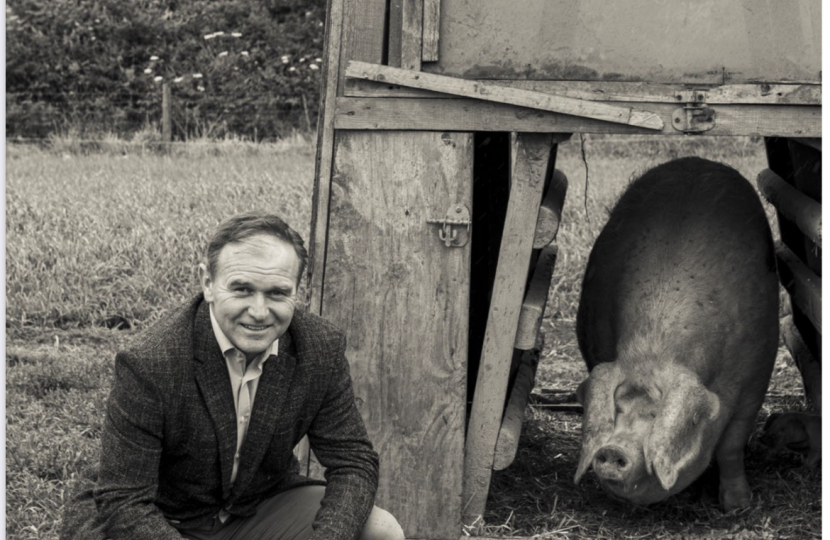
This week sees the start of the annual Royal Cornwall Show. Perhaps more than any other county in Britain, the Royal Cornwall Show is the yearly event that brings the whole community together. "See you at Royal Cornwall, if not before" is a much-used phrase in the six months leading up to the event.
My father was a council member and volunteer steward at Royal Cornwall when we were growing up and my grandfather was the Director of the Show Yard. So it was always a show the family attended. My father managed one of the gates which meant an early start. I can remember sometimes having to get up at 5 am to get a lift up and then spending three hours early in the morning wandering around the show when there were few others about, and nothing was open!
This year my brother, Giles, will again be showing some of our pigs. My family have kept British Lop Pigs (which are native to Cornwall) at Gwinear since the 1800s and we keep the herd to this day and sell the pork through the Farm Shop at Trevaskis. Last year at the Royal Cornwall, my brother won the pig interbreed championship with one of his British Lops, keeping alive a family tradition that has endured for generations and I will be hoping for a good result again this year.
The pedigree native breeds of livestock that are the centrepiece of all our agricultural shows have an essential role to play. Genetic diversity has always been the key that enables life to adapt to new challenges. When any species in its natural environment faces a threat through disease pressure, the solution is always to be found through a gene that has been tucked away somewhere and has particular traits that suddenly come into their own and spread. This creates the resilience on which life depends. It is a fundamental rule that protecting and maintaining both biodiversity across species and genetic diversity within species is of foremost importance to the planet and why we should strive to preserve the genetic diversity that is held within the many rare breeds and native breeds.
Once a particular gene or bloodline becomes extinct, it is gone for good. Commercial livestock breeders using cross-bred animals of no defined breed will frequently need to return to the pools of genetic resources maintained in our native breeds to find solutions to problems such as lameness, and disease susceptibility, or to improve meat quality. Those who keep our rare and native breeds alive are performing a vital service to the country and other farmers. That is why the Agriculture Act 2020 explicitly recognised native breeds as a public good, entitled to the receipt of public money in just the same way that we pay for environmental goods.
Recently, I have been leading a campaign that calls on the government to recognise the hard work of these breeders. The King has been a lifelong champion of our rare and native breeds of farm animals that keep alive genetic diversity in agriculture. I believe this lifelong commitment should be recognised through a new “Coronation Fund,” providing grant support to help native breeders develop their brand and market, and to support projects that preserve the genetic resources held within these native breeds.

